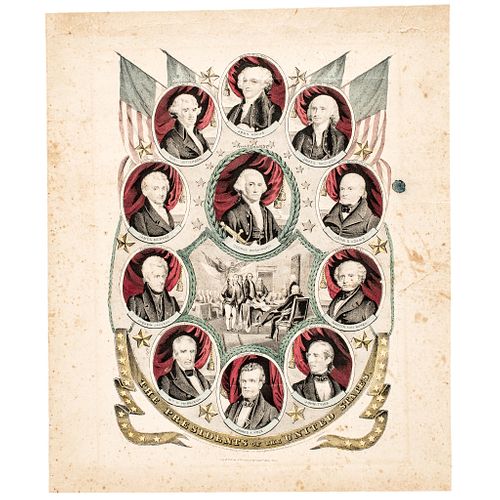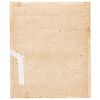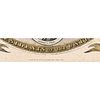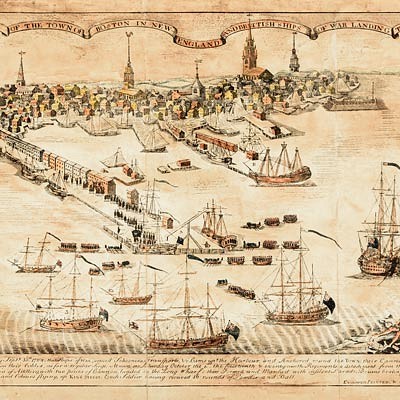1844 Nathaniel Currier Color Engraving of, The Presidents of the United States
Lot 228
Categories
Estimate:
$400 - $500
Absentee vs Live bid
Two ways to bid:
- Leave a max absentee bid and the platform will bid on your behalf up to your maximum bid during the live auction.
- Bid live during the auction and your bids will be submitted real-time to the auctioneer.
Bid Increments
| Price | Bid Increment |
|---|---|
| $0 | $10 |
| $200 | $20 |
| $300 | $25 |
| $500 | $50 |
| $1,000 | $100 |
| $2,000 | $200 |
| $3,000 | $250 |
| $5,000 | $500 |
| $10,000 | $1,000 |
| $20,000 | $2,000 |
| $30,000 | $2,500 |
| $50,000 | $5,000 |
| $100,000 | $10,000 |
| $200,000 | $20,000 |
| $300,000 | $25,000 |
| $500,000 | $50,000 |
About Auction
By Early American History Auctions
Mar 20, 2021
Set Reminder
2021-03-20 12:00:00
2021-03-20 12:00:00
America/New_York
Bidsquare
Bidsquare : Autographs-Colonial-Political-Americana
https://www.bidsquare.com/auctions/early-american-history-auctions/autographs-colonial-political-americana-6509
330 Lots of Rare, Historic Autographs, Americana, Civil War Era, George Washington, Abraham Lincoln, Slavery & Black History, Revolutionary War Era, Colonial America, Federal Period, War of 1812, Colonial Currency, Indian Peace Medals & more... Early American History Auctions auctions@earlyamerican.com
330 Lots of Rare, Historic Autographs, Americana, Civil War Era, George Washington, Abraham Lincoln, Slavery & Black History, Revolutionary War Era, Colonial America, Federal Period, War of 1812, Colonial Currency, Indian Peace Medals & more... Early American History Auctions auctions@earlyamerican.com
- Lot Description
Post-Revolutionary War to Civil War
1844 "The Presidents of the United States" by N. Currier
1844-Dated Color Engraving titled, "The Presidents of the United States" by Nathaniel Currier, Spruce St., New York, Fine.
This colorful patriotic Engraving by noted engraver Nathaniel Currier (of Currier and Ives fame) featuring portraits of the Presidents of the United States from George Washington to the "President-Elect" James Polk in 1844. Given central prominence is George Washington, his portrait being larger than the others and centered above Currier's engraving after John Trumbull's iconic Painting of the "Signing of the Declaration of Independence". Currier's plate measures 10" x 13.5" and is printed on a larger heavy wove period paper sheet measuring 13" x 15.5". The colors remain relatively deep and vibrant with a blue ink spot drip in the right margin as shown, as made. There is scattered foxing, a few tiny pinholes and a sealed 6.5" tear along the right edge margin away from the image that has been previously repaired on the blank reverse with archival fiber tape and currently appears as a crease. A lovely and handsome historic presentation for framing and display.
The 1844 United States presidential election was the 15th presidential election, held from Friday, November 1 to Wednesday, December 4, 1844. Democrat James K. Polk defeated Whig Henry Clay in a close contest turning on the controversial issues of slavery and the annexation of the Republic of Texas.
President John Tyler's pursuit of Texas annexation threatened the unity of both major parties. Annexation would geographically expand American slavery. It also risked war with Mexico while the United States engaged in sensitive possession and boundary negotiations with the United Kingdom, which controlled Canada, over Oregon. Texas annexation thus posed both domestic and foreign policy risks. Both major parties had wings in the North and the South, but the possibility of the expansion of slavery threatened a sectional split in each party. Expelled by the Whig Party after vetoing key Whig legislation and lacking a firm political base, Tyler hoped to use the annexation of Texas to win re-election as an independent or at least to have decisive, pro-Texas influence over the election.
The early leader for the Democratic nomination was former President Martin Van Buren, but his rejection of Texas annexation damaged his candidacy. Opposition from former President Andrew Jackson and most Southern delegations, plus a nomination rule change likely specifically aimed to block him, prevented Van Buren from winning the necessary two-thirds vote of delegates to the 1844 Democratic National Convention. The convention instead chose James K. Polk, former Governor of Tennessee and U. S. House Speaker, who emerged as the first dark horse nominee. Polk ran on a platform embracing popular commitment to expansion, often referred to as Manifest Destiny. Tyler dropped out of the race and endorsed Polk. The Whigs nominated Henry Clay, a famous, long-time party leader who was the early favorite but who conspicuously waffled on Texas annexation. Though a Southerner from Kentucky and a slave owner, Clay chose to focus on the risks of annexation while claiming not to oppose it personally. His awkward, repeated attempts to adjust and finesse his position on Texas confused and alienated voters, contrasting negatively with Polk's consistent clarity.
Polk successfully linked the dispute with the United Kingdom over Oregon with the Texas issue. The Democratic nominee thus united anti-slavery Northern expansionists, who demanded Oregon, with pro-slavery Southern expansionists who demanded Texas. In the national popular vote, Polk beat Clay by fewer than 40,000 votes, a margin of 1.4%. James G. Birney of the anti-slavery Liberty Party won 2.3% of the vote. As President, Polk completed American annexation of Texas, which was the proximate cause of the Mexican-American War.
Our Auction Contents:
Black History & Slavery: (Lots 1 - 63)
Abraham Lincoln Related: (Lots 64 - 74)
Historic Autographs: (Lots 75 - 235)
Colonial America: (Lots 236 - 261)
Revolutionary War: (Lots 262 - 304)
George Washington Related: (Lots 305 - 306)
Early American Guns & Weapons: (Lots 307 - 318) - Shipping Info
-
Early American provides in-house worldwide shipping. Please contact us directly if you have questions about your specific shipping requirements.
-
- Buyer's Premium



 EUR
EUR CAD
CAD AUD
AUD GBP
GBP MXN
MXN HKD
HKD CNY
CNY MYR
MYR SEK
SEK SGD
SGD CHF
CHF THB
THB













